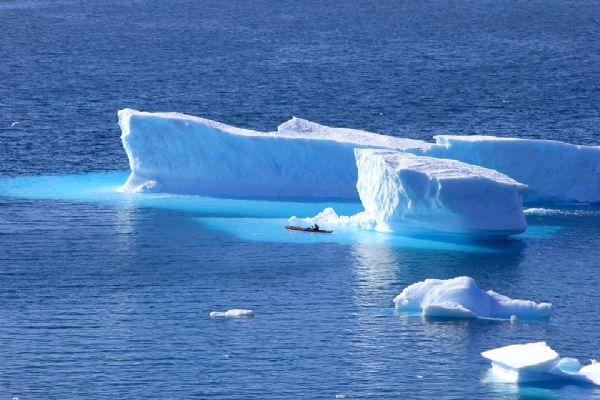India's Arctic Policy to make comparative study on glaciers of Himalayas, Arctic regions
18 Mar 2022 12:16:17
New Delhi, Mar 18: The policy, titled "India and the Arctic: building a partnership for sustainable development" was unveiled by Earth Sciences Minister Jitendra Singh. The policy lays down six pillars - strengthening scientific research and cooperation, climate and environmental protection, economic and human development, transportation and connectivity, governance and international cooperation, and national capacity building in the Arctic region.

Emphasizing the importance of India’s Arctic policy, Dr Jitendra Singh said that under the leadership of PM Narendra Modi, India has proudly moved forward to join an elite group of countries working on various aspects of Arctic. He also said that Indian researchers are monitoring arctic glaciers for their mass balance and comparing them with glaciers in the Himalayan region.
India has a significant stake in the Arctic. It is one of thirteen nations holding Observer status in the Arctic Council, a high-level intergovernmental forum that addresses issues faced by the Arctic governments and the indigenous people of the Arctic. "India's engagement with the Arctic region has been consistent and multidimensional. The country maintains that all human activity should be sustainable, responsible, transparent, and based on respect for international laws," a statement from the Ministry of Earth Sciences said.
The region holds immense geopolitical importance as the Arctic is projected to be ice-free by 2050 and world powers are making a beeline to exploit the region rich in natural resources. Besides metals and minerals, the region is also known to have huge oil reserves and is expected to emerge as a key sea transport lane in the future.
The Arctic policy aims to strengthen national capabilities and competencies in science and exploration, climate and environmental protection, maritime and economic cooperation with the Arctic region. It seeks to strengthen institutional and human resource capacities within the government and academic, research and business institutions through inter-ministerial coordination in pursuit of India's interests in the Arctic.
It also seeks to enhance understanding of the impact of climate change in the Arctic region on India's climate, economic and energy security. The policy also aims to promote better analysis, prediction and coordinated policymaking on the implications of ice melting in the Arctic on India's economic, military and strategic interests related to global shipping routes, energy security and exploitation of mineral wealth.
It also seeks to study the linkages between the polar regions and the Himalayas and deepen the cooperation between India and the countries of the Arctic region under various Arctic forums, drawing expertise from scientific and traditional knowledge.